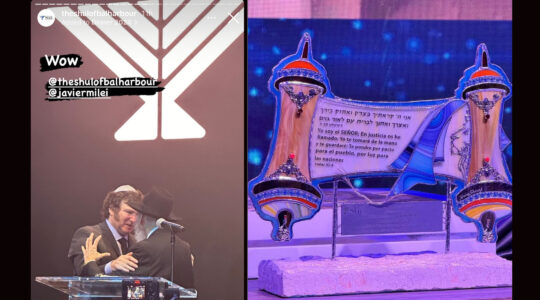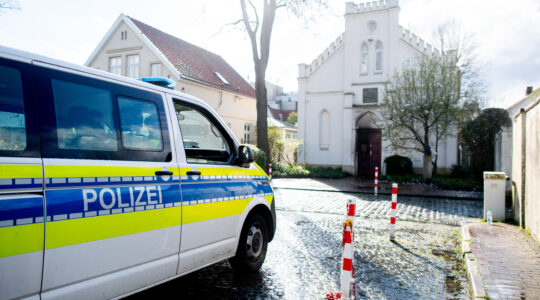Confused by this blog post’s title? Don’t worry: That’s "happy new year" in Icelandic.
Yep — at 7 a.m. on Tuesday morning, I’m headed to Iceland — for Rosh Hashanah, of all things.
Iceland has no synagogue and no organized Jewish community. The country, which has just over 300,000 residents in total, is estimated to have only about 40 Jews.
Most are Israelis and Americans married to native Icelanders, but they still come together for the High Holidays and Passover. And in recent years, the community has made an extra push, importing Chabad rabbis for major holidays and setting up a Facebook group.
The Rosh Hashanah celebration to be held Thursday and Friday in downtown Reykjavik is believed to be the first "in documented history," according to Rabbi Berel Pewzner, the Chabad rabbi leading the services.
"I’ve kind of made it my mission to help establish a Jewish community in Iceland," he wrote me in an email. "There remains much work to be done in finding Jewish people there and bringing them together — I’m sure there are many more Jews living in Iceland, however being that they are very assimilated, we do not know of them yet."
[[READMORE]]
A seder organized by Pewzner and another Chabad rabbi last year drew about 50 participants.
And then there’s the other quirk about Icelandic Jewry. For a country with just a few dozen Jews, one of its most prominent figures — First Lady Dorrit Moussaieff — is a member of the tribe.
I’ve had the idea of traveling to the far corners of Judaism for the High Holidays for months. Iceland is now booked and I may travel somewhere off the beaten track for Yom Kippur, too.
But there’s more to it for me than just the gotcha trivia question of "how many Jews do you think are in Iceland?" — as fun a game as that’s been to play throughout my European travels.
Rosh Hashanah is about rebirth and starting fresh, and the story of a tiny community making small steps forward attracts me.
Over the last three months, I’ve been traveling to a host of European cities whose identities are closely linked to their Judaism.
Paris can lay claim to a fair few Jewish neighborhoods, and Budapest’s Jewish quarter is among the first stops for even non-Jewish tourists. In Germany, Cologne just donated about $50 million to establish a state-of-the-art museum dedicated to the city’s medieval Jewish quarter.
That’s not the case in Reykjavik. I imagine that being an even semi-observant Jew in Iceland is something like an act of defiance — and I’m excited to test that theory.
I come from the most statistically Jewish county in the United States — Rockland, in suburban New York — and the idea of an entire country with fewer Jews than I went to Hebrew school with astounds me.
I’m hoping that a dose of lonely Iceland’s proud Jewish energy will teach me something new about being a Jew.





